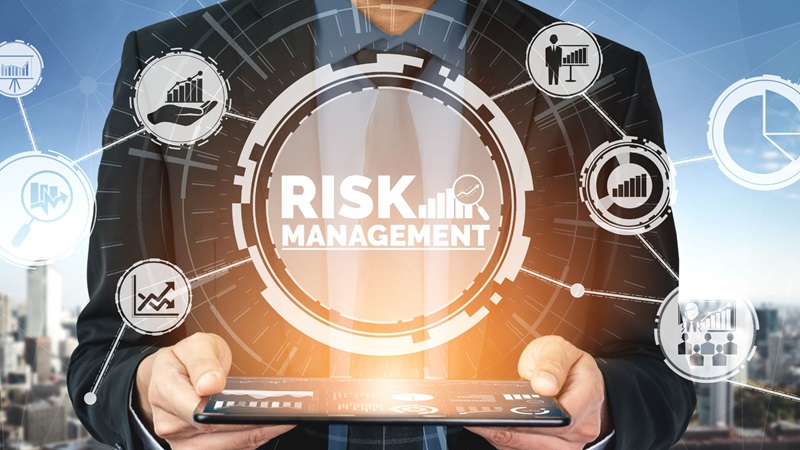
Cybersecurity Awareness Month: Emerging Cyber Threats in 2024, Key Trends & Best Practices to Stay Cyber Safe
As we move through 2024, the cybersecurity landscape is more complex than ever, with attackers using increasingly sophisticated tools and techniques to exploit vulnerabilities across industries. From artificial intelligence (AI)-powered cyberattacks to ransomware that targets specific sectors, businesses must adapt quickly to defend against emerging threats.
Whether you're in the legal industry, finance, healthcare, or another commercial field, the risks of a breach are too high to ignore. This blog outlines the key cybersecurity trends for 2024, along with practical steps your business can take to remain protected.
Emerging Cyber Threats in 2024
1. AI-Powered Cyber Attacks
AI technology is not just a tool for innovation—it’s also being weaponized by cybercriminals. AI-augmented phishing attacks, for example, are now more convincing and personalized than ever. These attacks use deep learning algorithms to analyze an individual’s online behavior and craft deceptive messages that are extremely difficult to detect. Law firms, in particular, need to be wary of these attacks, as phishing can lead to unauthorized access to sensitive client information.
2. Ransomware-as-a-Service (RaaS)
Ransomware continues to be a significant threat, but in 2024, attackers are adopting a service-based model. Ransomware-as-a-Service (RaaS) allows even non-technical criminals to deploy sophisticated ransomware attacks by purchasing or leasing malicious software. This trend has led to an increase in ransomware attacks across industries. Commercial businesses like retail and healthcare are at heightened risk due to the vast amounts of sensitive data they handle.
3. Zero-Day Exploits
Zero-day vulnerabilities—security flaws that are unknown to the software vendor—are a growing concern in 2024. These vulnerabilities can be exploited before a fix is developed, allowing hackers to infiltrate systems unnoticed. Legal firms that rely on older systems or software may be particularly vulnerable, making it crucial to ensure all applications are regularly updated.
4. Cloud Security Risks
With more businesses migrating to cloud solutions, cloud-based cyberattacks are also on the rise. Misconfigured cloud environments and inadequate monitoring can lead to data breaches. Industries like finance and healthcare, where compliance and data privacy are critical, need to ensure their cloud security strategies are airtight to avoid significant fines and reputational damage.
Cybersecurity Best Practices in 2024
To stay ahead of these emerging threats, businesses need to implement robust cybersecurity practices. Here are some key strategies to protect your organization:
1. Implement Multi-Factor Authentication (MFA)
While passwords are still widely used, they’re no longer enough to keep hackers out. Multi-Factor Authentication (MFA) adds an extra layer of security by requiring additional verification, such as a code sent to your phone. This is especially important for industries like law and finance, where sensitive data is often stored in online accounts.
2. Conduct Regular Security Audits
Performing routine audits of your systems can help identify vulnerabilities before they’re exploited. Legal firms, for instance, should regularly review their case management software, while commercial enterprises should audit point-of-sale systems to ensure they are secure.
3. Employee Training on Cybersecurity Awareness
Many cyberattacks are the result of human error, such as employees falling for phishing scams. Regular cybersecurity awareness training is essential for businesses in all industries. For example, legal firms should train staff on how to recognize phishing attempts that target client case files, and commercial businesses should educate employees on avoiding ransomware links.
4. Endpoint Security & Monitoring
With many employees working remotely, endpoint security (protecting devices such as laptops, phones, and tablets) is critical. Using tools that monitor and secure these endpoints can prevent unauthorized access to your network.
5. Keep Software & Systems Updated
One of the simplest yet most effective cybersecurity practices is to regularly update software and systems. Zero-day vulnerabilities often target outdated systems. Ensuring that your business uses the latest versions of all applications and patches security gaps as soon as updates are released will go a long way in protecting your data.
Key Industry Examples: Legal and Commercial
In the legal industry, the threat of cyberattacks is ever-present. Law firms handle highly sensitive data that could be damaging if leaked or altered. Hackers often target legal professionals through spear phishing or by exploiting unpatched software. Adopting a proactive cybersecurity strategy—like incorporating MFA and endpoint security—can help mitigate these risks.
In commercial sectors, particularly retail and healthcare, the sheer volume of personal data makes them prime targets for ransomware and cloud-based attacks. With new ransomware strains on the rise, it’s essential for businesses in these industries to back up data regularly and have a response plan in place in case of an attack.
Stay Ahead of the Curve with Expert Cybersecurity Support
The cybersecurity threats of 2024 require a proactive, multi-layered approach. From AI-powered attacks to sophisticated ransomware, no industry is immune. Protecting your business starts with understanding the risks and implementing best practices tailored to your specific needs.
Take the next step in securing your business. Contact PACE Technical for a comprehensive cybersecurity strategy that safeguards your data, clients, and reputation. Let’s work together to keep your business safe from evolving cyber threats.
Author:
Mel Duncan
Manager, Marketing Communications & Culture

.tmb-cfthumb_fb.png?Culture=en&sfvrsn=b0d69e1f_1)





